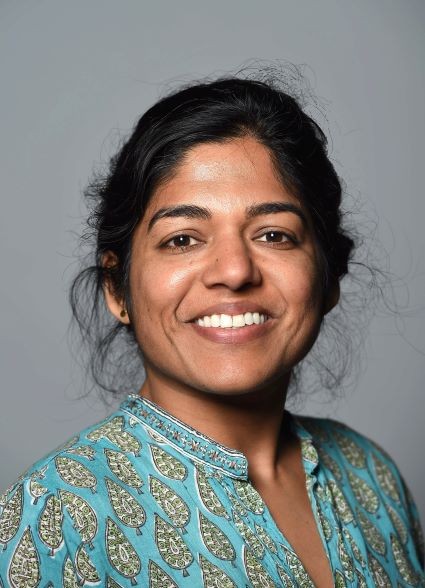Newswise: Young and old can learn a thing or two from each other, at least when it comes to mental health and cognition.
In a new study, published on September 12, 2022 in Psychology and Aging, researchers at the University of California San Diego School of Medicine found that healthy older adults show higher mental well-being but lower cognitive performance than younger adults. The underlying neural mechanisms may inspire new interventions to promote healthy brain function.
“We wanted to better understand the interplay between cognition and mental health throughout aging, and whether they are based on activation of similar or different brain areas,” said lead author Jyoti Mishra, PhD, director of NEATLabs and associate professor of psychiatry at UC St. Diego School of Medicine.
The study sampled 62 healthy young adults in their 20s and 54 healthy older adults over 60 years old. The researchers assessed the participants’ mental health, examining symptoms of anxiety, depression, loneliness, and general mental well-being. The participants also performed various cognitively demanding tasks while their brain activity was measured using electroencephalography (EEG).
The results showed significantly worse symptoms of anxiety, depression and loneliness in the young and greater mental well-being in the older adults. However, when it came to cognition, task performance was significantly lower in older adults.
The EEG recordings revealed that during the tasks, the older adults showed increased activity in the anterior portions of the brain’s default mode network. This group of brain areas is usually active when an individual is ruminating, daydreaming, or rambling, and is usually suppressed during goal-oriented tasks.
“The default mode network is useful in other contexts, helping us process the past and imagine the future, but distracting when you’re trying to focus on the present to tackle a demanding task quickly and accurately,” Mishra said.
While the default mode network seemed to interfere with cognition, several other areas of the brain seemed to enhance it. Better task performance in younger adults was associated with increased activity in the dorsolateral prefrontal cortex, part of the brain’s executive control system. In older adults, however, those with better cognitive performance showed increased activity in the inferior frontal cortex, an area that helps guide attention and avoid distractions.
The dorsolateral prefrontal cortex is known to degrade with aging, so the researchers suggest that increasing inferior frontal cortex activity may be one way for older adults to compensate for these tasks.
The team is now investigating therapeutic interventions to strengthen these frontal networks, such as brain stimulation methods, while suppressing the network by default through mindful meditation or other practices that orient people to the present.
“These findings may provide new neurological markers to help monitor and mitigate cognitive decline in aging, while preserving well-being,” said Mishra.
The study may also inspire new ways to address the mental health of younger adults. “We tend to think of people in their twenties as being at their cognitive peak, but it’s also a very stressful time in their lives, so when it comes to mental wellbeing, there may be lessons to be learned from older adults. and their brains,” Mishra said.
Study co-authors include Gillian Grennan, Pragathi Priyadharsini Balasubramani, Nasim Vahidi, Dhakshin Ramanathan, and Dilip V. Jeste, all at UC San Diego.
Funding for the study came, in part, from the National Institute of Mental Health (grant T32-MH019934), the NeuroAIDS Interdisciplinary Research Grant (grant R25MH081482), the Stein Institute for Research on Aging at UC San Diego, the Brain Behavior Research Fund, the Kavli Foundation, the Burroughs Wellcome Fund Career Award for Medical Scientists, and the Sanford Institute for Empathy and Compassion.
Complete study: https://doi.org/10.1037/pag0000710
# # #
window.fbAsyncInit = function () {
FB.init({
appId: ‘890013651056181’,
xfbml: true,
version: ‘v2.2’
});
};
(function (d, s, id) {
var js, fjs = d.getElementsByTagName(s)[0];
if (d.getElementById(id)) {
return;
}
js = d.createElement(s);
js.id = id;
js.src = “https://connect.facebook.net/en_US/sdk.js”;
fjs.parentNode.insertBefore(js, fjs);
}(document, ‘script’, ‘facebook-jssdk’));
.
